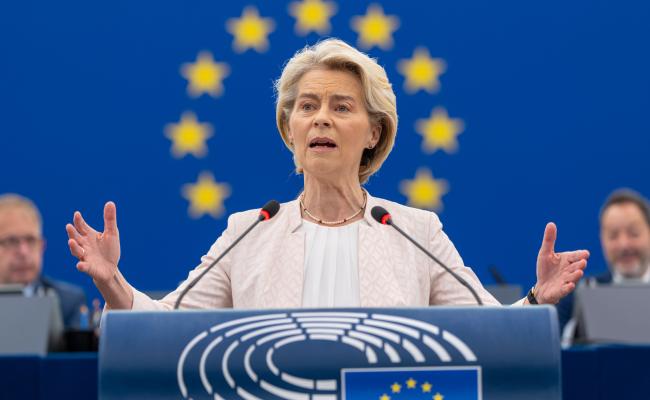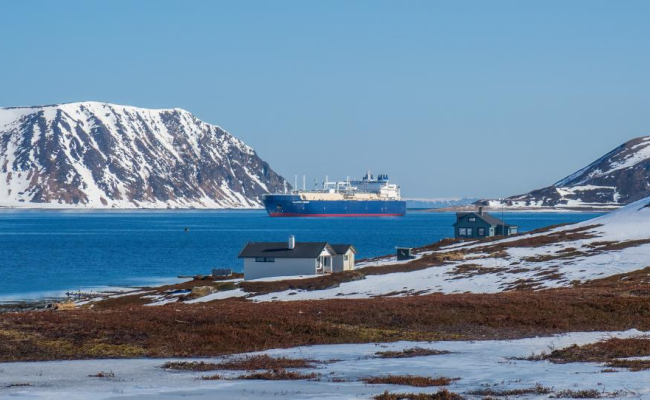EU Imports of Russian Gas Grow Again, Including LNG, Contrasting with Brussels Latest Efforts to Phase Out Supplies

French President Emmanuel Macron called remaining imports “very marginal” expressing doubt that action was needed to reduce imports further. (Photo: Laurent Blevennec/Office of the President of France)
European Union countries spent 30 percent more on Russian gas during the first half of 2025 than in 2024. The new figures highlight the bloc’s difficulty to fully wean itself off the supplies as the European Commission aims to accelerate the phase-out of Russian gas.
Renewed talk in Brussels to bring forward the proposed phasing out Russian gas clashes with current market realities. During the half of 2025 purchases of Russian gas by EU member states increased by 5 percent. The bloc spent €8.4 billion on Russian pipeline gas and liquefied natural gas (LNG), new figures by Eurostat indicate.
Especially imports of supercooled liquefied gas from the Russian Arctic continue unabated. The gas is carried on specialized tankers from Siberia to import terminals in Western Europe and en route passes through the Barents and Norwegian Seas.
During the first seven months of 2025 the EU paid €5.1 billion for LNG, compared to €4 billion during the same period in 2024. Meanwhile payments for pipeline gas have seen a decline from €3.95 billion last year to €3.2 billion this year.
Belgium and France remain key buyers of Russian LNG. Belgium alone spent €1.4 billion on imports between January and September 2025, exceeding the country’s military aid to Ukraine of €1.2 billion during the same period.
France’s imports also remain significant. Data from Norway’s Center for High North Logistics show that in the three months from June - August the country imported 20 shipments, five more than the same period last year. In July alone it spent €173 million on Russia LNG.
This is not a key driver today
Skepticism among EU member states
In recent comments French President Macron called remaining imports “very marginal” expressing doubt that action was needed to reduce imports further. French energy firm TotalEnergies remains invested as a minority partner in the Yamal LNG project.
“This is not a key driver today,” Macron said in an interview with the U.S. broadcast Face the Nation on Sunday. “We decreased by more than 80% the consumption of oil and gas.”
His statements come at a time when Russia’s share of the continent’s gas supplies jumped to 19 percent in 2024 up from 15 percent the year prior.
Pipeline gas
The final phase-out of Russian gas and LNG has also laid bare divisions among EU member states. During this week’s UN General Assembly Slovak’s Foreign Minister Juraj Blanar pointed to the hypocrisy of Western EU member states calling on Slovakia to end pipeline gas imports when they themselves increase imports of Russian LNG.
"France, Spain, and the Netherlands... so can you see the picture is a little bit more colourful than black and white," Blanar said. "It takes time to diversify this. So that's why we are calling for some kind of empathy,"
Any decision by the EU to ban the import of Russian LNG requires unanimous agreement among member states.



